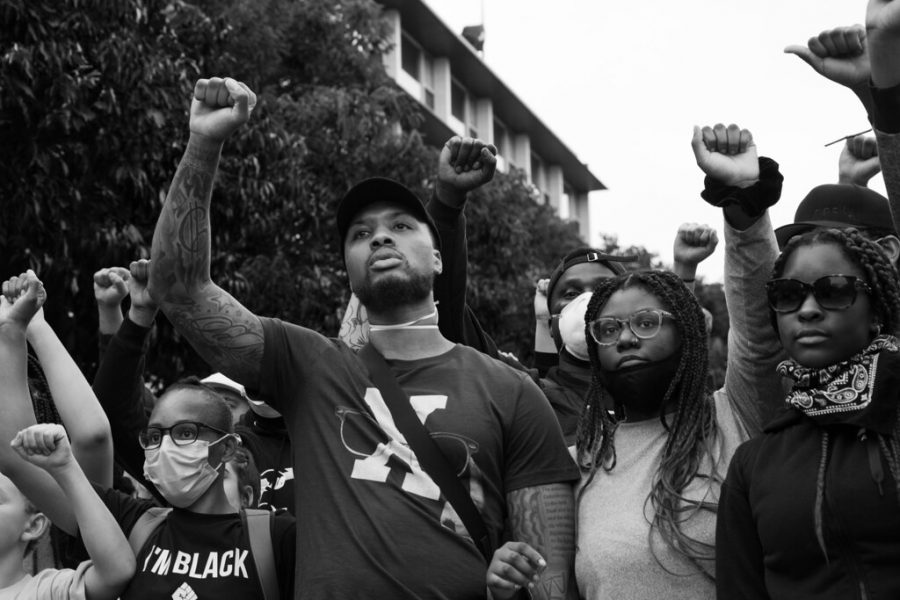Sports leagues, players advocate for social justice reform
Portland Trail Blazers star Damian Lillard took part in protests of police brutality over the summer.
December 7, 2020
Sparked by the brutal deaths of Breonna Taylor, Jacob Blake and George Floyd, sports leagues have begun using their platforms to advocate for social justice. While individual players have advocated for social issues in the past, major sports leagues have largely avoided this subject, fearing it would alienate fans.
With a rapid increase in activism on and off the court, team owners and league commissioners have embraced and supported calls for social justice reform.
The leading force behind this new shift has been the National Basketball Association (NBA), who, in August, saw players and teams boycott games in protest of the recent police shootings. After a summer of supporting these player protests, two weeks ago, the NBA announced the creation of its Social Justice Coalition, which aims to utilize the position of players, coaches and owners in order to address key issues such as voting access and criminal justice reform.
The National Football League (NFL) similarly embraced its platform when it supported teams remaining in the locker during the national anthem or choosing to link arms. It has also committed to spending $250 million over the next decade on social justice initiatives in order to fight “the battle against the ongoing and historic injustices faced by African Americans,” according to an NFL press release.
Many young Americans across the country see this change as a long-awaited step in the right direction.
Junior Kayla Liss, an avid NBA fan, applauds the efforts of national sports organizations and players.
“It’s been really nice to see [NBA players] using their platforms to combine social justice with sports,” Liss said. “…Particularly with police brutality, those were issues that were important to them and have really impacted their communities.”
Students like Liss view the increased emphasis on social justice from the heads of these organizations not as radical or dangerous, but rather as a reflection of the player’s views who keep the league running in the first place.
The shift in attitude has incited backlash from more conservative Americans who don’t approve of the support of social justice movements during games. Junior Jason Vinokur views some of the growing social justice initiatives as political, and, therefore, thinks they should be separated from American sports.
“I think it’s fine when players post or protest outside of the games and the court, because they can do whatever they want on social media, but during the time their games are being played, they should not be pushing a political message,” Vinokur said.
Conservative Americans like Vinokur see this shift as further dividing the country, instead of addressing real issues.
According to an ESPN survey, over 70% of Americans support players and leagues advocating for social justice reforms. However, there is little middle ground between supporters and critics, as this has become an increasingly polarized issue under the Trump presidency, especially in recent months.
So far, the professional American sports leagues for baseball, hockey, football and basketball have committed to either donating money to social justice initiatives over the next decade or enacting change through newly-created coalitions.








